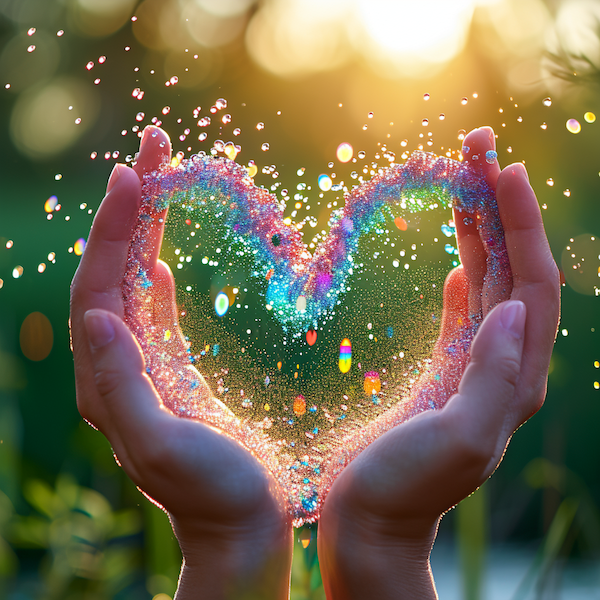“I just kept saying, ‘I’m sorry’ and ‘I love you’ over and over again. Turns out that loving yourself is the greatest way to improve yourself, and as you improve yourself, you improve your world.” — Dr. Ihaleakala Hew Len
I’ve always thought there’s something powerful about saying “thank you.” It seems so simple, but I’ve seen it make a difference. Sometimes it pulls someone up when they’re having a hard time. Other times it softens a tense moment or just brightens an ordinary day. Gratitude spreads. When you give it freely, people often feel moved to pass it along.
Not every word has that effect, though. I remember apologizing once with everything I had, only to be met with silence. The person I hurt wasn’t ready, and maybe the wound was too deep. That moment taught me something I’ll never forget: honesty doesn’t guarantee healing. Sometimes words just aren’t enough, at least not right away.
I notice this even more now that so much of life happens online. We send emojis, stickers, or quick messages, and while they have their place, they don’t carry the same weight as a real connection. When was the last time you looked someone in the eye and said “thank you” or “I’m sorry” with genuine feeling?
Gratitude doesn’t need to be grand. A simple word of thanks can go further than you think. A funny sticker might make someone smile, but it doesn’t carry the warmth of a voice or the intention behind spoken words. My parents raised me to say “thank you” and “I’m sorry,” and as a child those words mattered. As I grew older, I caught myself saying them more out of habit than from the heart.

It wasn’t until later that I came across the Ho’oponopono prayer.It’s made up of four short lines:
“I’m sorry.
Please forgive me.
Thank you.
I love you.”
Simple words, but they cut right to the heart.
Rebecca Cole once said that people rarely acknowledge kindness these days. Her observation hit me. Even a small thank you can mean so much. And whenever I give thanks with intention, it leaves me with a sense of peace.
I also think of Francesca Gino’s story about receiving a note of appreciation from her husband’s CEO. It wasn’t for anything huge, just patience and understanding. Yet it stayed with her. That story reminded me to check myself, to ask if I was really saying “thank you” often enough, and if I was saying it with sincerity.

Apologies matter just as much. Every time I say “I’m sorry,” I see it as more than admitting a mistake. It’s about showing respect and keeping trust alive. Guy Winch, in his book *Emotional First Aid,* talks about how an apology can heal not only the person receiving it but also the one giving it. I’ve felt that myself.
Still, words are not enough on their own. A real apology needs to be backed by change. I tell my husband this often. It’s not just about saying sorry, it’s about understanding the hurt and doing the work to avoid repeating it. He’s learning, and so am I.
Gratitude and honest apologies have a way of changing how we live. They do more than smooth things over. They strengthen relationships, bring a sense of peace, and keep us focused on what truly matters. We shouldn’t wait until it’s too late to speak the words that matter. A simple thank you or a sincere apology can go a long way.

